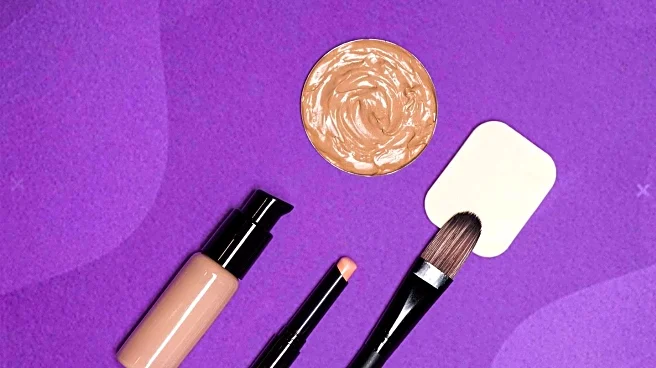What is the story about?
What's Happening?
As the fall season begins, maintaining a sun-kissed glow becomes a priority for many. However, achieving a natural look with self-tanner and makeup can be challenging. Celebrity makeup artist Bryan Cantor and Trina Eibon, business manager of IONIQ, highlight common errors in self-tanner application, such as mismatched face-neck tones and undertone drift towards orange. Cantor emphasizes the importance of blending makeup from the face onto the neck and matching foundation shades to the chest for a unified skin tone. Eibon notes that bright light and flash photography can magnify application errors, and conventional tanners may not adapt to individual skin tones, leading to unnatural results.
Why It's Important?
The discussion on self-tanner and makeup application is significant as it addresses common beauty challenges faced by individuals seeking to maintain their appearance. Proper application techniques can enhance confidence and prevent noticeable errors in public or on camera. The insights from beauty experts provide valuable guidance for consumers and professionals in the beauty industry, emphasizing the importance of product selection and application methods. This knowledge can influence consumer choices and industry standards, promoting better practices in cosmetic application.
What's Next?
Beauty enthusiasts and professionals may seek further education on application techniques to avoid common errors. The industry might see an increase in demand for products that adapt to individual skin tones, prompting manufacturers to innovate and improve formulations. Additionally, beauty brands could offer more educational content and tutorials to assist consumers in achieving flawless results. As awareness grows, there may be a shift towards products that offer better blending capabilities and more natural-looking finishes.
Beyond the Headlines
The conversation around self-tanner and makeup application highlights broader themes of self-image and societal beauty standards. It underscores the pressure individuals face to conform to certain aesthetic ideals and the role of the beauty industry in shaping these perceptions. Ethical considerations arise regarding the marketing of beauty products and the potential impact on consumer self-esteem. Long-term, this could lead to a cultural shift towards embracing natural beauty and reducing reliance on cosmetic enhancements.
















